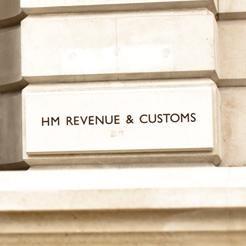Seizing Your Assets!

HMRC may probably use unexplained wealth orders to address money laundering concerns here in the UK by Russian oligarchs. This can also apply to cryptocurrency activities.
Unexplained wealth orders came into being in the Criminal Finances Act 2017 however, HMRC rarely uses this to investigate individuals and in fact has only brought nine investigations using the orders.
At a recent press conference on the war in Ukraine, the Prime Minister confirmed that HMRC will be requested to use its ‘Unexplained Wealth Order (UWO) powers to step up its investigations. This could be a great asset to establish who owns what.
The government will be asking HMRC to use its sophisticated computer systems, that I talk about in my free workshop, to investigate individuals and companies who they believe may be of interest.
The computer system can look at and interrogate bank accounts, mortgages, travel movements, loans, money transfers, etc, and will immediately flag up issues where the figures don’t add up or tie in with submitted Tax Returns and there is unexplained wealth. This is not just limited to an individual’s activities in the UK.
Unexplained wealth orders have already been used to identify those who have been avoiding paying their taxes; and this can also be used in relation to an individual's activities in crypto.
A UWO is a civil power as well as an investigation tool. It requires the individual in question to provide information on specific matters: their legal ownership of a property, and how it was obtained. It is important to note that, as an investigation power, a UWO is not, by itself, a power to recover assets. It is an addition to various powers already stipulated in the Proceeds of Crime Act 2002 (POCA) to investigate and recover the proceeds of crime and should therefore not be viewed in isolation.
The government has several tools that it can use in addition to UWOs to not only identify suspicious money but also seize it or freeze it. We have seen this happening with the Russian billionaire Roman Abramovich. UWOs and the interim freezing orders, were introduced by the Criminal Finances Act 2017 and started being used on 31 January 2018. A UWO is an investigation order issued by the High Court once certain criteria are satisfied.
The criteria that the investigatory body must demonstrate are as follows:
- the respondent holds the asset;
- the property is valued at more than £50,000;
- there is a reasonable belief that the respondent owns the property;
- there are reasonable grounds to believe that the respondent’s legitimate income would not be sufficient to acquire the property;
- there are reasonable grounds to suspect the respondent has or has had links to those involved in serious crime (or is a politician or official from outside the European Economic Area (EEA), or is someone associated with them, ie, politically exposed persons (PEPs). A UWO made in relation to a non-EEA PEP would not require suspicion of serious criminality.
UWO legislation permits enforcement agencies to investigate the source of assets based on the reasonable belief that they may have been obtained illegally. The subject of the order then has to prove that the relevant property is not criminal property. If they fail to comply with it the order, then the investigatory body can apply to the court for a CRO to confiscate said property.
Agencies that can use UWOs include National Crime Agency, HMRC, Financial Conduct Authority, Serious Fraud Office, or Crown Prosecution Service.
Any evidence provided in response to a UWO, will be scrutinised in the decision-making process. This may be referred and considered for criminal or civil action. An individual does have the ability to challenge a UWO, however, it can be both a long and arduous process, and the use of interim orders can make it even more challenging. Assets can be frozen very quickly but seizing the assets will take much longer.
Want to learn more about the blockchain and also your tax exposure?
To register with the DBM Academy click HERE.
Crypto Accounting & Taxes course with Delriene Smith
